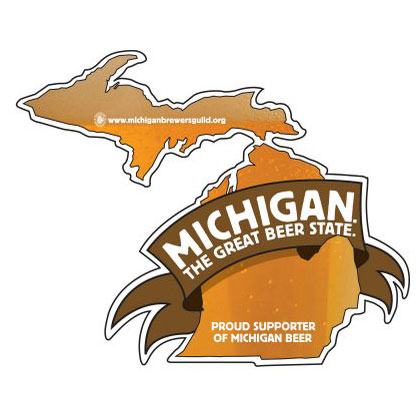
House Bills 4709, 4710, and 4711 would reform current Michigan liquor control codes, allowing the state’s brewers, ‘micro brewers’ and brewpub owners to continue growing in both size and scale.
“We are at a point in Michigan where craft beer continues to grow and the state’s brewing operations are doing quite well,” said Scott Graham, the executive director of the Michigan Brewers Guild. “We are in a very regulated climate and the perspective of the landscape has changed.”
As proposed, House Bill 4709 would increase the barrel production threshold from 30,000 to 60,000 barrels for “micro brewer” license holders. House Bill 4710 would allow brewpub operators to own interest in six brewpubs as long as the combined production of all locations does not exceed 18,000 barrels annually. Brewpub proprietors can currently own and operate three brewpub locations and may not brew more than 5,000 barrels of beer per year.
“Right now, there isn’t anyone screaming ‘hey, I’m ready to open my fourth brewpub!,’” said Graham. “But, we have seen instances where they have to change their business model and split up ownership.”
The final proposed amendment, House Bill 4711, would allow Michigan brewers producing more than 30,000 barrels annually — Bell’s Brewery and Founders Brewing Co. are the only ones currently doing so — to sell their beer for on-premise consumption at two brewery locations. As it stands now, those brewers are only able to sell beer at only one location.
“The profit margin is a lot higher when you are selling beer across your own bar,” said Eric Briggeman, the director of brewing operations for Rochester Mills Beer Co. “As a small business, the greatest benefit would be that you could make more of a profit. And if you are creating more sales and making more beer, there is always the potential to create more jobs.”
Graham believes that some of Michigan’s existing microbrewers, like Short’s Brewing, will eventually produce enough beer to qualify for a brewers license. Short’s produced just over 18,000 barrels in 2012, according to Brewers Association records, and already operates multiple locations.
“We are going to see more people grow out of the micro category into the brewer category,” he said. “It is great for their businesses to have the cash flow that comes from selling beer over their own bars.”
All three bills have yet to pass committee, and Graham said he was hopeful that the House would have passed them before breaking for summer recess. Brewers and distributors will have to wait until later this year before the bills will be read.
“There are no guarantees in Lansing, but I am hopeful these bills will pass and want to work towards that end,” said Graham.
